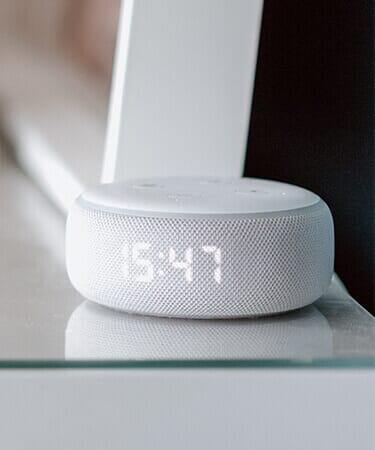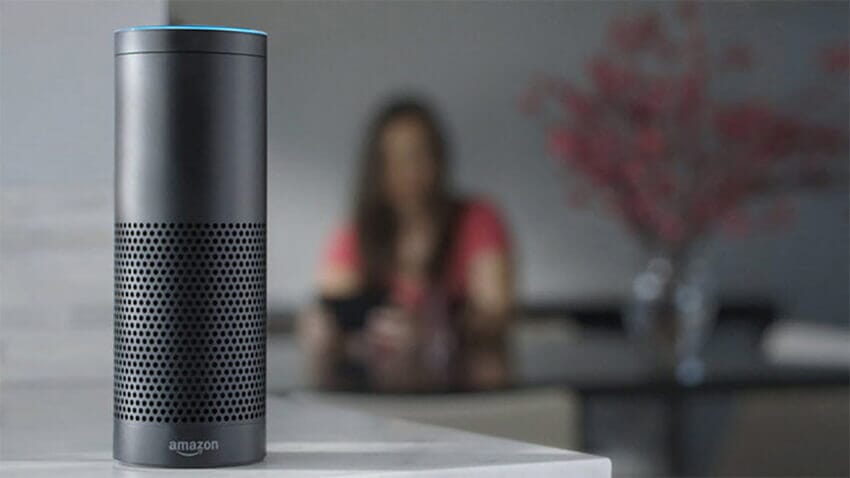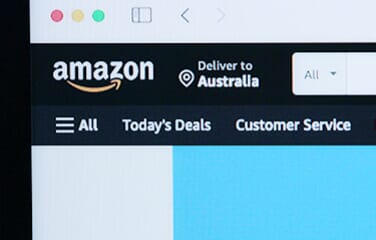Alexa. Remember that name. She’s about to change everything. Who’s that girl? On the heels of the Consumer Electronics Show (CES) in Las Vegas, Amazon has quietly positioned itself to become even more central to our lives. They are staffing up to meet the expected...
Who’s that girl?
On the heels of the Consumer Electronics Show (CES) in Las Vegas, Amazon has quietly positioned itself to become even more central to our lives. They are staffing up to meet the expected demand that will stem from the new girl in town: Alexa. She’s the voice technology behind the Amazon Echo and Echo Dot tech gadgets.
Amazon CEO Jeff Bezos reports, “We plan to add another 100,000 new Amazonians across the company over the next 18 months as we open new fulfilment centres, and continue to invent in areas like cloud technology, machine learning and advanced logistics.”
Alexa’s rapid adoption rate
According to multiple sources, Amazon has sold anywhere from 6M to 8.5M Echo and Echo Dot devices since they were introduced in late 2014. Sales figures in 2016 were at least double that of 2015, with a 9x increase during the Christmas holiday season. In fact, Amazon Echo was the bestselling product across amazon.com this holiday and was out of stock online before the season ended. To further drive sales in the U.S., Amazon opened 30 pop-up stores at shopping centres across the country to get these smart speakers into shoppers’ hands in time for the holidays.
But Alexa is not a one-hit holiday wonder. As of January 2017, Amazon has sold enough Echo devices to put one in 6% of U.S. households. Keep in mind that it took the home PC nearly 10 years to reach the same level of penetration.
Why is this happening?
Our expectations as consumers have been greatly influenced by Prime and Zappos (an Amazon company), and shopping habits have been equally influenced by the wide range of selection of everything available at Amazon.com. Now the way we operate in our homes is being augmented by Amazon. As George Manas, President of Resolution Media put it:
“As a vibrant ecosystem of networked devices takes shape within our everyday lives, voice search and conversation interfaces like Amazon’s Echo are re-imagining the possibilities around shopping and commerce and customer relationships for a new age.”
Why she’ll be your new best friend
We all have Kindles. We all have Prime. So what’s the big deal about Echo? It’s Alexa. She is your new best friend. She’s worldly (Alexa what time is it in Bangladesh?). She’s sassy (Alexa tell me a joke!). She gets you (Alexa play music. “OK, here is a station you might like”). She’s also connected to your Amazon Prime account, Amazon Music, can control your lights, your thermostat, your television (via Amazon Fire Stick) and just about anything you can imagine.
Best of all, Alexa is pretty low-tech to operate. All you need is a voice. Your voice. No need to read, spell, type, or see. If you can speak, you can accomplish a lot. Food delivered to your door. A new pair of sneakers from Zappos. Setting the mood by dimming the lights and turning on some smooth tunes. All done with your voice command. And all paid for with your Amazon Prime account. Easy peasy.
Got a product? Better integrate with Alexa!
At CES 2017 last week, there were dozens of devices made with an Alexa integration. Companies including LG, Ford, GE, Lenovo, Samsung, DISH, WeMo, First Alert, Nabi, Whilrpool, ADT, Somfy and more, had products on display built solidly on the Alexa platform. If you are a developer or product designer, Amazon has made it easy for you to integrate Alexa into your offering. They have even created a certification and marketing program.
Marketers prepare for Alexa
If you’re a marketer or a brand, you need to get ready for an Alexa world. The best thing to do is to dig into your search and social data and understand how people are looking for you. What words and ideas do they use when they talk about you, your product or service? Then leverage that data to start optimising your content. Be sure you are very familiar with Bing Search, and that your content — both organic and paid — is well optimised, as Bing powers Alexa Search.
What is your company doing to capitalise on Alexa?




